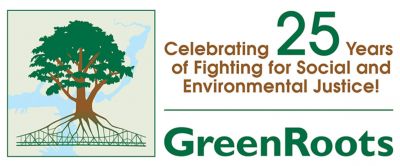Environmental organizations across Massachusetts have evolved their practices to better adapt to newfound difficulties from the pandemic.
GreenRoots, a resident-led organization in Chelsea that advocates for environmental justice, began discussing this spring the issues its team expected to see moving forward.

Roseann Bongiovanni, executive director of GreenRoots, said this preliminary meeting centered on mapping out how to protect the public health of Chelsea, which she said was a vulnerable community.
“We had to really pivot our programmatic work to focus on COVID response,” Bongiovanni said. “We haven’t dropped any of our programs. They all look very different.”
What started as an initial meeting between GreenRoots and its stakeholders became a series of daily calls with what grew into 75 stakeholders over more than two months.
GreenRoots founded The One Chelsea Fund, a cash assistance program that helps Chelsea families affected by COVID-19. GreenRoots raised $1.3 million, which they then shared with two other community-based organizations.
The group also established an emergency food distribution hub, aided by the National Guard, and has kept it staffed for the past six months.
“We led on communications and neighborhood wellness and developed a system to make sure that pretty much everybody in the city was reached out to,” Bongiovanni said, “that they had information in a language that was accessible to them.”
GreenRoots also reached out to Chelsea residents in hopes of alleviating fears about their immigration status and inability to pay for emergency room visits, Bongiovanni said.
The Massachusetts Chapter of the Sierra Club has also maintained their public outreach during the pandemic.
Emma Brown, communications associate of the Massachusetts Sierra Club, said the chapter has held weekly events over Zoom called Advocacy Hour, during which members are informed about the club’s campaigns and partner organizations.
Brown said being online still presents a learning curve for the club months into the pandemic.
“A lot of our members are older and don’t have reliable access to the Internet,” Brown said. “They can’t join in on these issues. We don’t have the capacity to mail them a letter or give them a phone call every time we need to gather for an issue.”
To combat members’ potential unfamiliarity with technology, the Sierra Club wrote several guides in March and April on how to use G-Suite products, such as Google Calendar and Google Docs, Brown said.
Alongside their current efforts to keep the public engaged and informed, Brown and Bongiovanni said their respective organizations are looking at the roads ahead and still have more to do.
“We need to create that infrastructure,” Bongiovanni said, “so that everybody knows this is who the first stop is, this is who’s providing help with emergency housing, this is who’s proving help with emergency food, this is who’s providing help clothing.”
Brown said it’s important for groups to be creative and adapt their advocacy to support calls for other types of justice.
“This summer, there has been a particularly conferring need for us to show our support, because at the end of the day, racial justice, housing justice, environmental justice are all interrelated topics,” Brown said. “How do we meaningfully create these parallels in our work?”
Bongiovanni said she hopes the hands-on experience that GreenRoots has accumulated during its pandemic response can help better prepare members for future unexpected circumstances.
“If we had a climate disaster, how would people evacuate? How would they get information?” Bongiovanni said. “How do we get ahead of climate impacts and think more about green infrastructure, green energy?”










